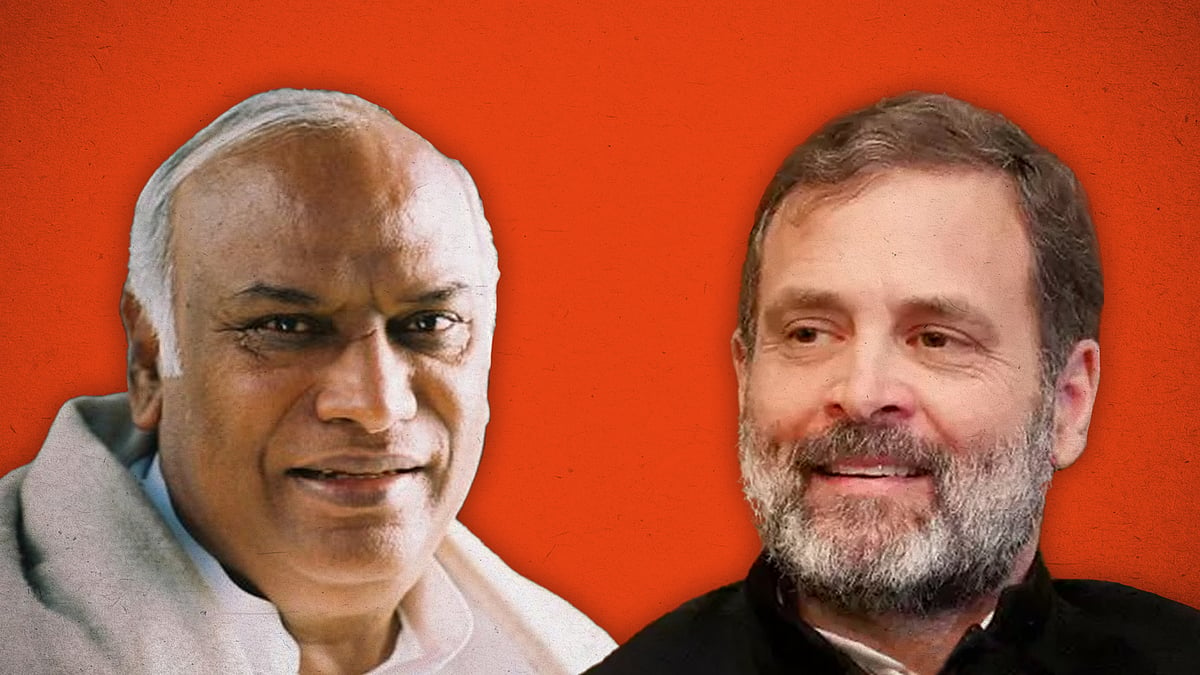Between ‘snake’ and ‘maiden’ jibes: Karnataka poll campaign takes the usual ‘poisonous’ turn
Verbal excesses in poll campaigns ride on acceptability of depleted civility.
As if determined to not disappoint the cynics, the figure of speech is having a wild run in the ongoing Karnataka Assembly poll campaign. The controversies have taken a serpentine turn; the Congress president Mallikarjun Kharge has been accused of calling PM Narendra Modi “a poisonous snake” (a comparison that, he later clarified, was used for the BJP, not the PM), while Karnataka BJP MLA and former union minister Basanagouda Patil Yatnal used the metaphor of “vishkanya” (poison maiden) for the former Congress chief Sonia Gandhi.
Unsurprisingly, the recent spotlight on the defamation proceedings against a prominent Opposition leader for his alleged verbal excess in a poll campaign speech hasn’t been a deterrent.
It isn’t that the intemperate language in election speeches was completely unknown in the early years of the Indian republic. Even if the vocabulary of electioneering was mostly restrained within civil limits, there were times when it stretched propriety to take uncouth stings. There were even occasions when it called for judicial intervention. In one such case in 1964 (Kultar Singh vs Mukhtiar Singh), for instance, the Supreme Court had taken a lenient view of such verbal transgressions committed in the course of a poll campaign.
“The atmosphere is usually surcharged with partisan feelings and emotions and the use of hyperboles or exaggerated language, or the adoption of metaphors and extravagance or expression in attacking one another are all part of the game. So, when the question... is argued in the cold atmosphere of a judicial chamber some allowance must be made and impugned speeches must be construed in that light,” the Court observed.
That, however, hasn’t meant that the coarsening of political attacks have been one-off episodes during the poll campaign. This has been fed and in turn has been fed off by the unfettered abandoning of niceties in political communication- ranging from the street meetings to the speeches made in legislative bodies, including the Parliament debates.
In between, the media interactions became the preferred sites for offering churlish soundbites- sometimes intended, sometimes goofed-up and even misquoted at times. In between these, the unmediated political communication on the social media is much an avenue of instant polemics for the political class as much as it runs the risk of leaving the digital footprints of their crass moments.
That was one of the reasons offered in defense of a former Congress president. On April 21, 1997, in his reply to a motion of confidence debate in the Lok Sabha, prime minister HD Deve Gowda expressed anguish over being called “nikamma” by then Congress president Sitaram Kesari. Trying to defend his party president, Congress leader Mani Shankar Aiyar downplayed it as an “act of solecism”. One isn’t sure how many bought that explanation. It was tough to do so – as a Hindi heartland native, Kesari could not cite an ignorance of Hindi semantics.
Last year, when Congress MP Adhir Ranjan Chowdhury used the word “rashtrapatni” for India’s first tribal President, he was quick to defend himself against the outrage by calling himself a “non-native Hindi speaker”. Unlike Kesari, he indeed isn’t from the Hindi heartland. But, his lack of grasp over the different connotations of “rashtrapatni”, and his apparent callousness about the gender-neutral nature of the actual constitutional nomenclature, gave him no shield against the outrage. In these times of the instant weaponization of hot-button topics like identity politics, Chowdhury ended up pressing the wrong buttons. The subsequent uproar in the Parliament, and sharp political reactions from the ruling BJP, show that Chowdhury’s choice of word, far from being limited to a verbal faux pas, will be mined as a Freudian slip.
Coming back to the coarsening of the poll campaign rhetorics, it would be useful to see how the limits of acceptability have stretched in the last 25 years or so. This is particularly obvious when seen in the gradual slipping away of restraint in language while targeting leaders holding high constitutional positions. In the 1998 Lok Sabha polls campaign, for instance, Congress leader Sonia Gandhi’s use of the word “liar” for the then Prime Minister Atal Bihari Vajpayee had left a note of disquiet. Sonia had used the word in response to Vajpayee accusing the Rajiv Gandhi government (1984-89) of indulging in corruption. By pre-social media benchmarks of verbal diatribes, Sonia accusing a former minister of lying was considered a new low. News magazine India Today in its issue dated March 2, 1998, had reported: : “In Delhi, where she caused a flutter among sticklers for political norms by calling Atal Bihari Vajpayee a liar (Vajpayeeji ne sarasar jhooth bola hai).”
One can very well imagine that use of such words is likely to go unnoticed in poll campaigns today as one of the most benign forms of attack. For that matter, the reception for substituting liar with “less careful with facts” hasn’t been ever very wide in Indian electioneering. But over the last two decades, the verbal landscape of political duels has changed rapidly. We don’t know whether the news magazine that registered shock over Vajpayee being called a “liar” in 1998 was equally scandalized when Mani Shankar Aiyar used the “neech aadmi” jibe against an incumbent prime minister in 2017. It’s highly unlikely. Verbal niceties no longer find a place in high-voltage performance politics that have round-the-clock audiences on social media platforms, with little to distinguish between a parliament speech and poll rally rhetoric.
Given such weight of combative polemics and lure of instant digital dissemination of the coarsening poll campaign is leaving little space between the “poisonous snake” and “vishkanya” jibes. But, the reinventing of a restrained vocabulary for political duels, even in the heat of a poll campaign, would need a space far away from such drift of verbal excess.
 Cong’s centre alliance pitch in strife with its state politics
Cong’s centre alliance pitch in strife with its state politics How can a reader identify ‘paid news’? Ahead of Karnataka poll, Press Council spells it out
How can a reader identify ‘paid news’? Ahead of Karnataka poll, Press Council spells it out